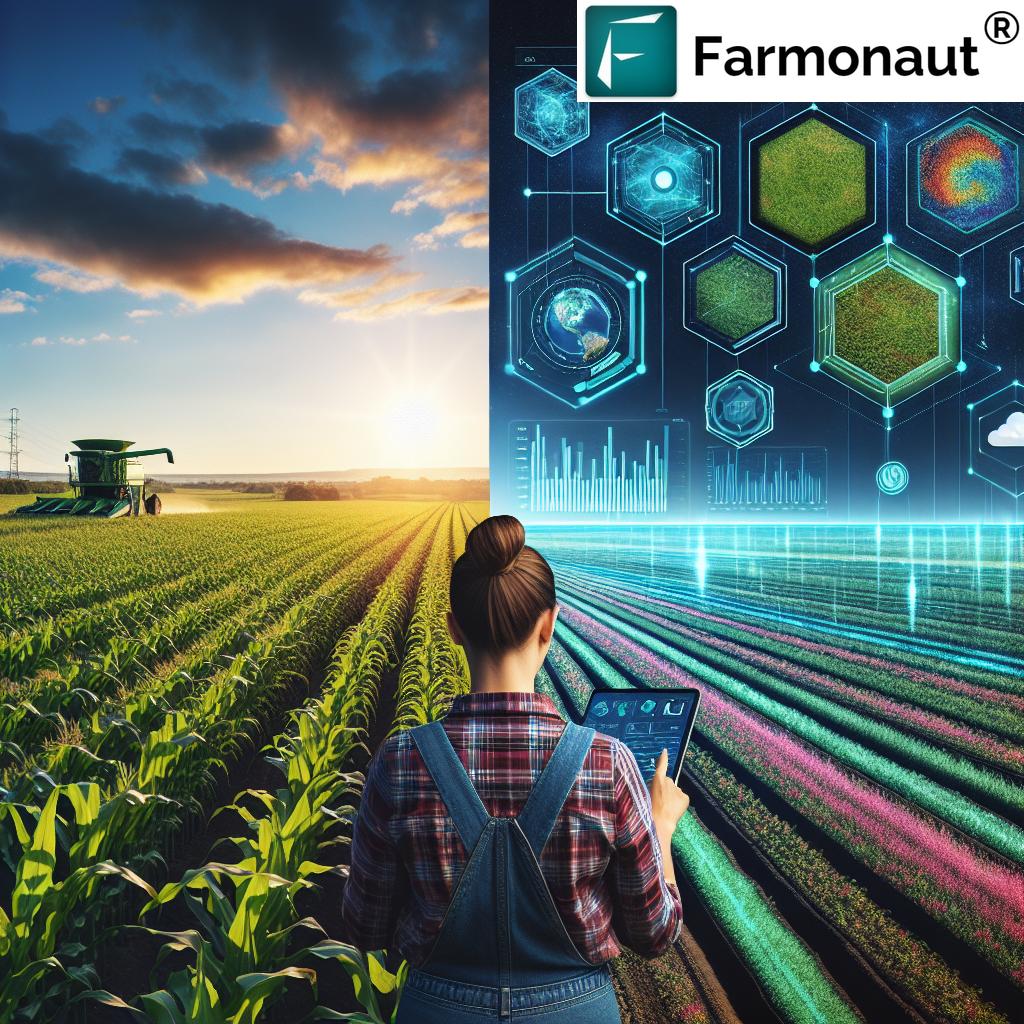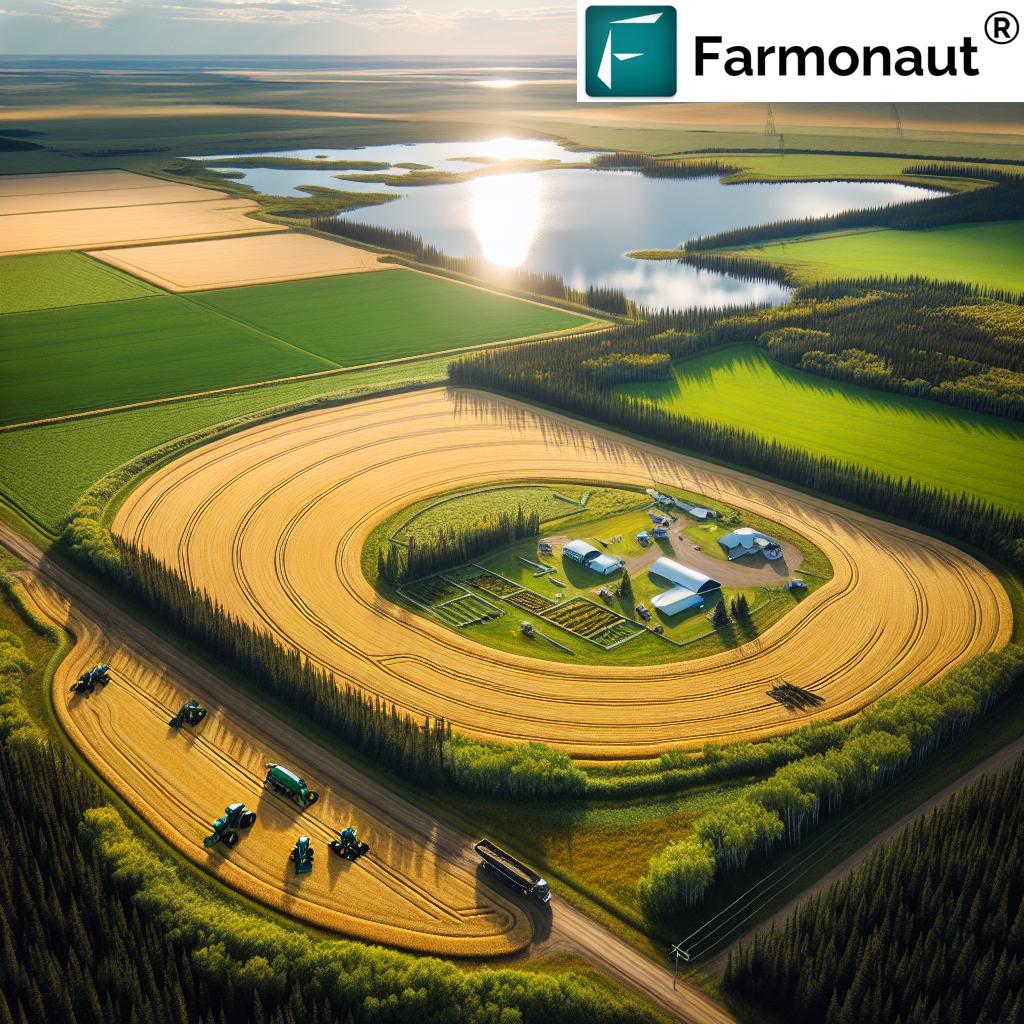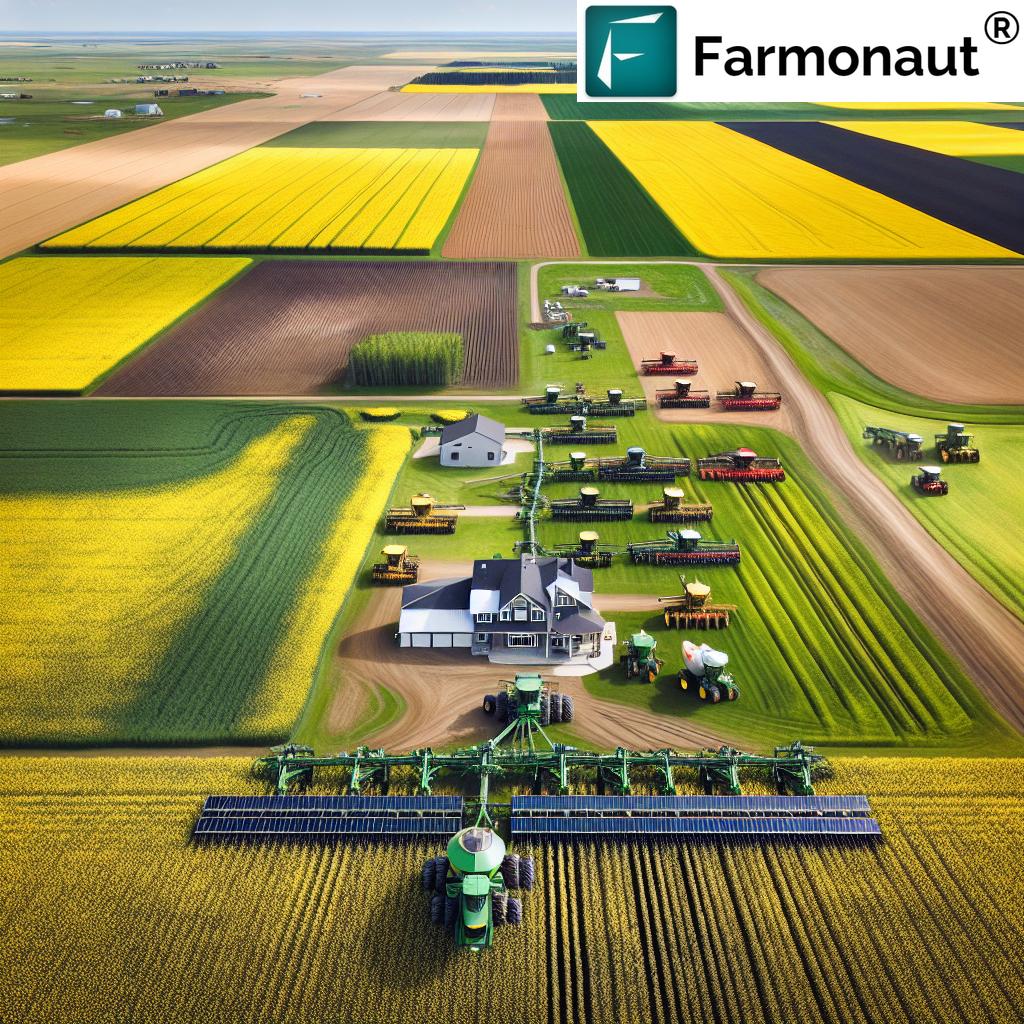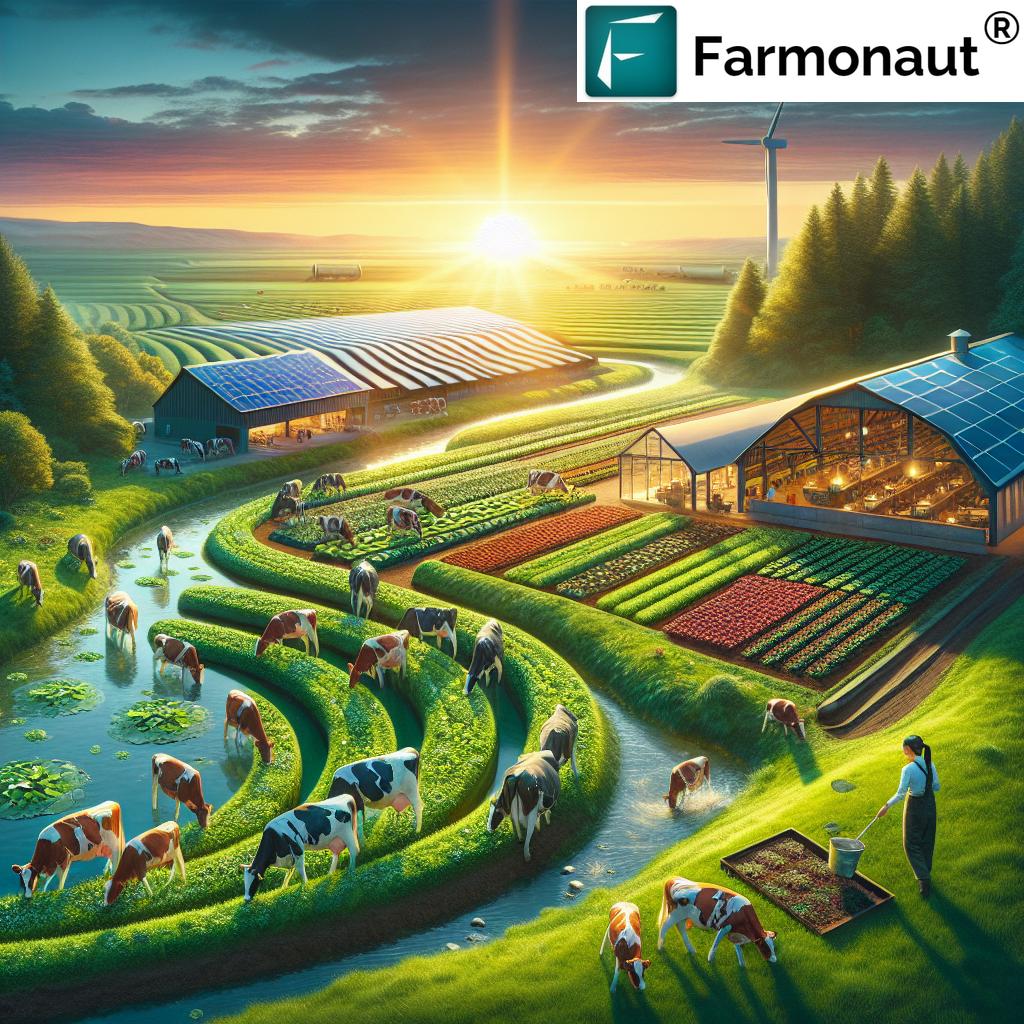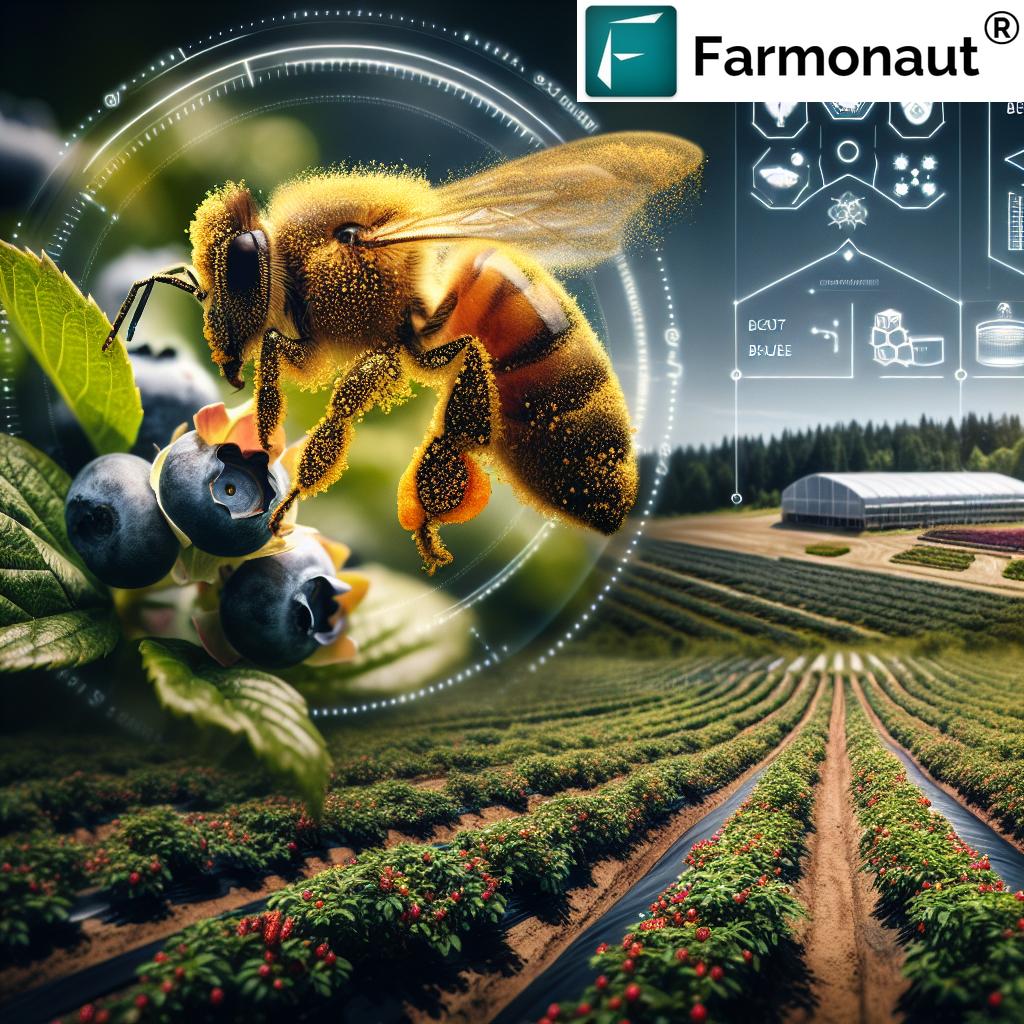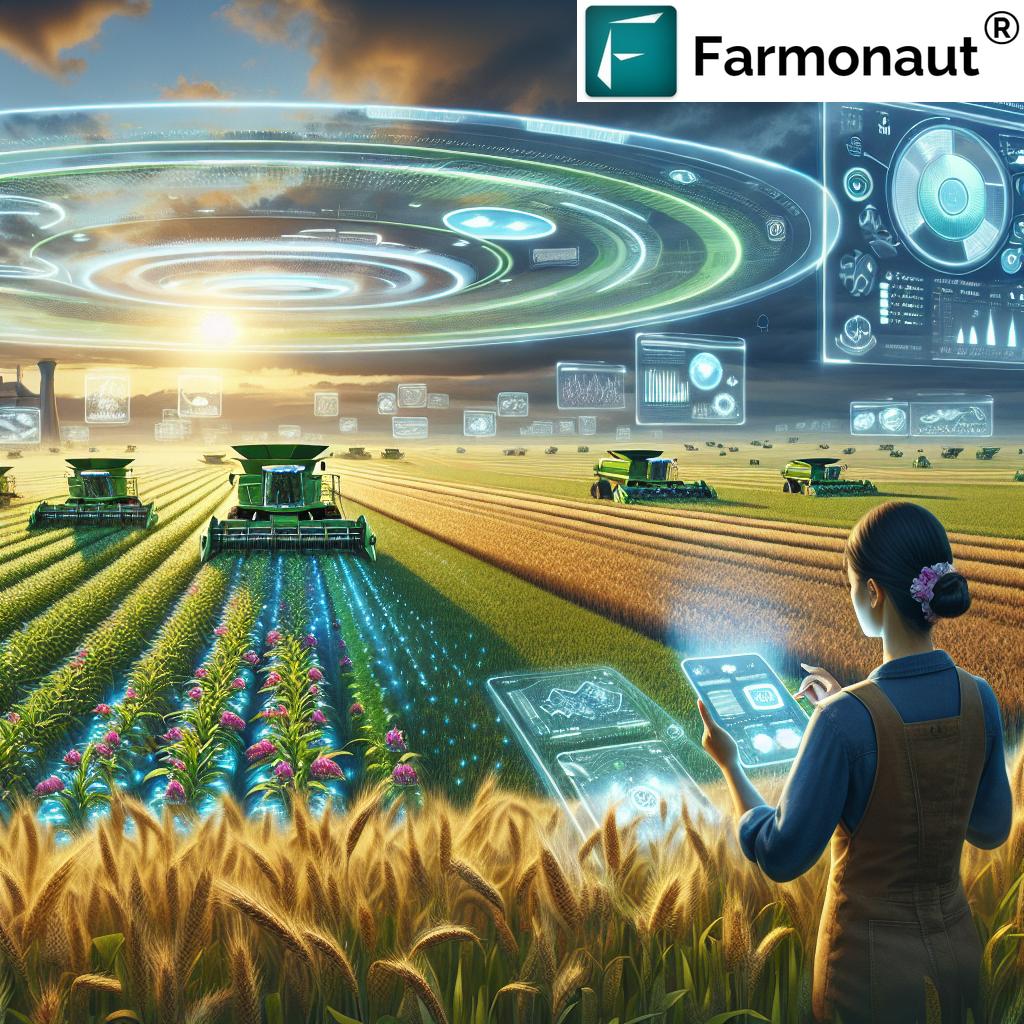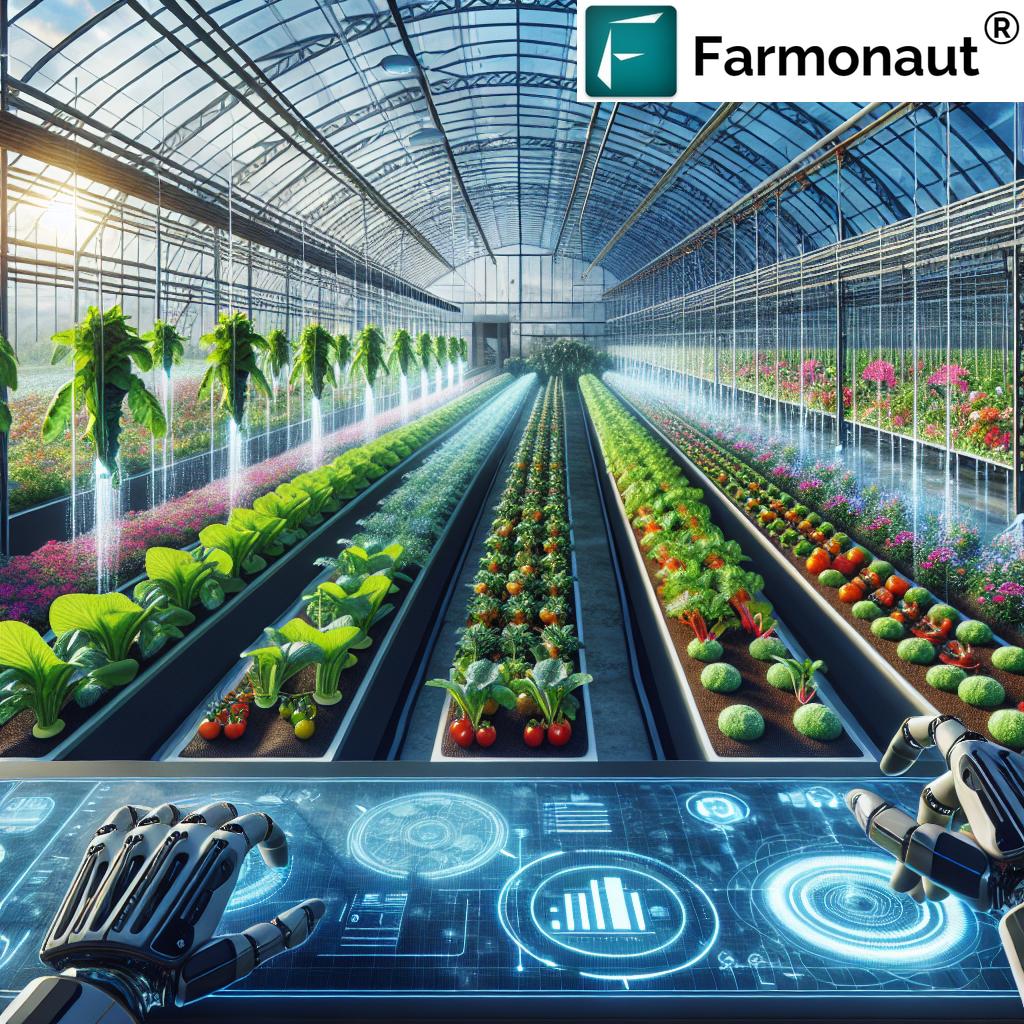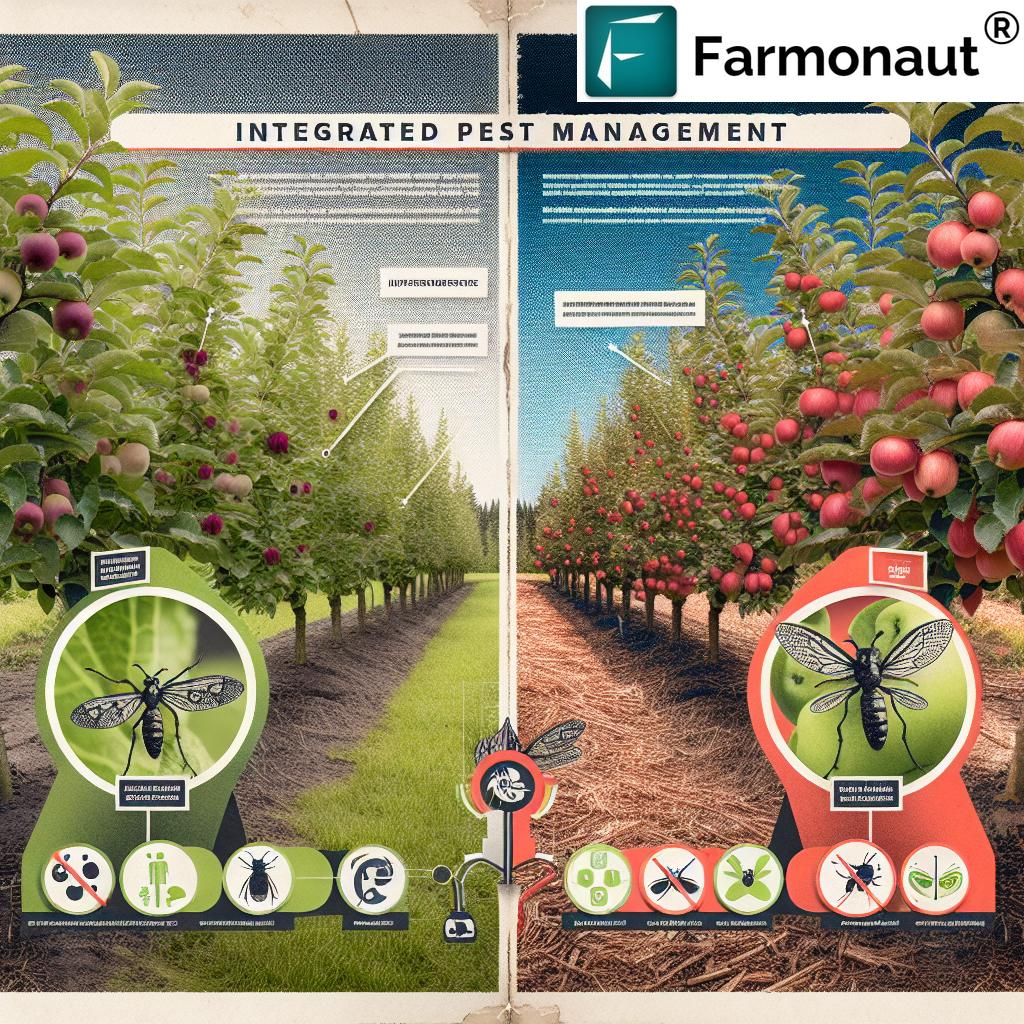Unlocking Agricultural Potential: Quebec’s Certified Organic Wollastonite Revolution in Sustainable Farming
“Quebec’s certified organic wollastonite is revolutionizing sustainable farming, impacting over 1 million hectares of agricultural land.”
In the ever-evolving landscape of sustainable agriculture, we are witnessing a remarkable transformation driven by innovative fertilizer technologies and eco-friendly soil amendments. At the forefront of this revolution is Quebec’s certified organic wollastonite, a mineral-based crop nutrient that is reshaping the way we approach farming practices. As we delve into this groundbreaking development, we’ll explore how agricultural calcium silicate is paving the way for a more sustainable and productive future in farming.
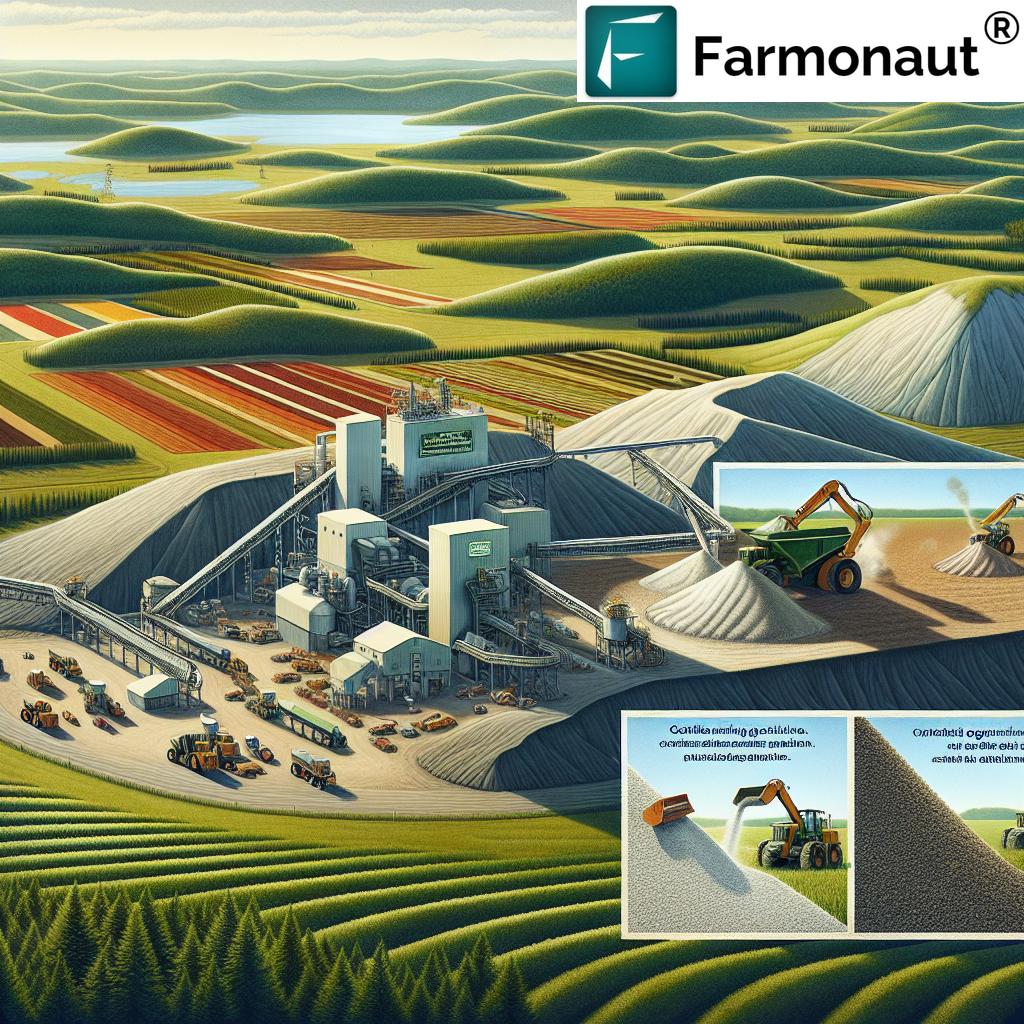
The Rise of Wollastonite in Agriculture
Wollastonite, a naturally occurring calcium silicate mineral, has emerged as a game-changer in the agricultural sector. Its unique properties make it an invaluable resource for enhancing soil health and crop productivity. Let’s explore why this mineral is gaining such prominence in sustainable farming:
- Soil pH Regulation: Wollastonite helps stabilize soil pH, creating optimal conditions for nutrient uptake.
- Silicon Supplementation: It provides a rich source of silicon, an essential element for plant strength and resistance to stressors.
- Calcium Availability: The mineral offers a slow-release form of calcium, crucial for plant growth and development.
- Improved Soil Structure: Wollastonite enhances soil aggregation, leading to better water retention and aeration.
The adoption of wollastonite in agriculture aligns perfectly with the growing demand for sustainable farming supplements and eco-friendly soil amendments. As we continue to face global challenges such as climate change and food security, innovations like these play a crucial role in ensuring a resilient and productive agricultural sector.
Quebec’s Wollastonite: A Certified Organic Revolution
The province of Quebec has taken a significant leap forward in the realm of sustainable agriculture with its certified organic wollastonite. This development is not just a local achievement but a milestone in the global movement towards more sustainable and efficient farming practices.
Vertical Exploration Inc., a company listed on the TSX Venture Exchange, has recently made headlines with its groundbreaking announcement. The company has secured a new five-year permit for its Global Wollastonite Agricultural Calcium Silicate product, sourced from the St-Onge wollastonite quarry in Quebec. This certification from the Canadian Food Inspection Agency (CFIA) marks a significant milestone in the journey of agricultural innovations.
Let’s break down the importance of this certification:
- CFIA Certification: This approval ensures that the product meets stringent safety and quality standards set by Canadian regulations.
- Organic Certifications: The product has also received organic certifications from OMRI and Ecocert, underscoring its compatibility with organic farming practices.
- Market Access: With these certifications, Vertical Exploration can now market its Global Wollastonite product across all agricultural applications in Canada.
This comprehensive set of certifications positions Quebec’s wollastonite as a leader in the field of organic fertilizer certifications, setting a new standard for sustainable mining for agriculture.
Canadian Agricultural Regulations: A Framework for Innovation
The success of Quebec’s certified organic wollastonite is underpinned by Canada’s robust regulatory framework for fertilizers and supplements. The Federal Fertilizers Act governs these products, ensuring that they meet strict criteria for safety and efficacy.
“Canadian agricultural regulations have certified over 50 new mineral-based crop nutrients in the last 5 years, boosting eco-friendly farming.”
Key aspects of these regulations include:
- Safety Assurance: All products must be proven safe for plants, animals, humans, and the environment.
- Correct Labeling: Strict guidelines ensure that products are labeled accurately for safe and effective use.
- Environmental Considerations: The regulations prioritize eco-friendly soil amendments and sustainable farming practices.
Vertical Exploration’s compliance with these stringent standards demonstrates the company’s commitment to quality and safety in agricultural innovations.
The Impact of Certified Organic Wollastonite on Sustainable Farming
The introduction of certified organic wollastonite into the agricultural sector is set to have far-reaching implications for sustainable farming practices. Let’s explore the potential benefits and impacts:
- Enhanced Crop Yield: The unique properties of wollastonite can lead to significant improvements in crop productivity.
- Reduced Chemical Inputs: As a natural soil amendment, wollastonite can help reduce the reliance on synthetic fertilizers.
- Improved Soil Health: Long-term use of wollastonite can enhance soil structure and fertility.
- Water Conservation: Better soil structure leads to improved water retention, reducing irrigation needs.
- Climate Resilience: Plants grown with wollastonite amendments show increased resistance to environmental stresses.
These benefits align perfectly with the goals of sustainable agriculture, offering a path to more resilient and eco-friendly farming systems.
Comparative Analysis: Wollastonite vs. Traditional Farming Methods
To better understand the revolutionary potential of certified organic wollastonite, let’s compare its effects with traditional farming methods:
| Agricultural Parameters | Traditional Farming Methods | Wollastonite-Enhanced Farming | Percentage Improvement |
|---|---|---|---|
| Soil pH Stabilization | Variable, requires frequent adjustment | Stable, long-term improvement | Up to 30% better stability |
| Crop Yield Increase | Baseline | Significant improvement | 10-20% increase |
| Silicon Uptake in Plants | Limited | Enhanced | Up to 50% increase |
| Calcium Availability | Variable, often requires supplements | Consistent, slow-release | 25-35% improvement |
| Pest Resistance | Moderate | Improved | 15-25% better resistance |
| Water Retention | Standard | Enhanced | 20-30% improvement |
| Fertilizer Efficiency | Standard | Improved utilization | 15-25% better efficiency |
This comparative analysis clearly demonstrates the significant advantages of incorporating certified organic wollastonite into farming practices. The improvements across various agricultural parameters underscore the potential of this innovative approach to revolutionize sustainable farming.
Global Implications and Market Opportunities
The success of Quebec’s certified organic wollastonite opens up a world of opportunities, not just for local farmers but for the global agricultural community. Let’s explore the potential impact on international markets and partnerships:
- Export Potential: Quebec’s wollastonite could become a sought-after export, contributing to global sustainable farming efforts.
- International Collaborations: This innovation may spark research partnerships and knowledge exchange with agricultural institutions worldwide.
- Market Expansion: As awareness grows, we could see an increased demand for wollastonite-based products in various agricultural sectors globally.
- Sustainable Mining Practices: The success of this venture may encourage more sustainable mining practices for agricultural purposes in other regions.
The global reach of this innovation aligns with the growing trend of international cooperation in addressing agricultural challenges and promoting sustainable practices.
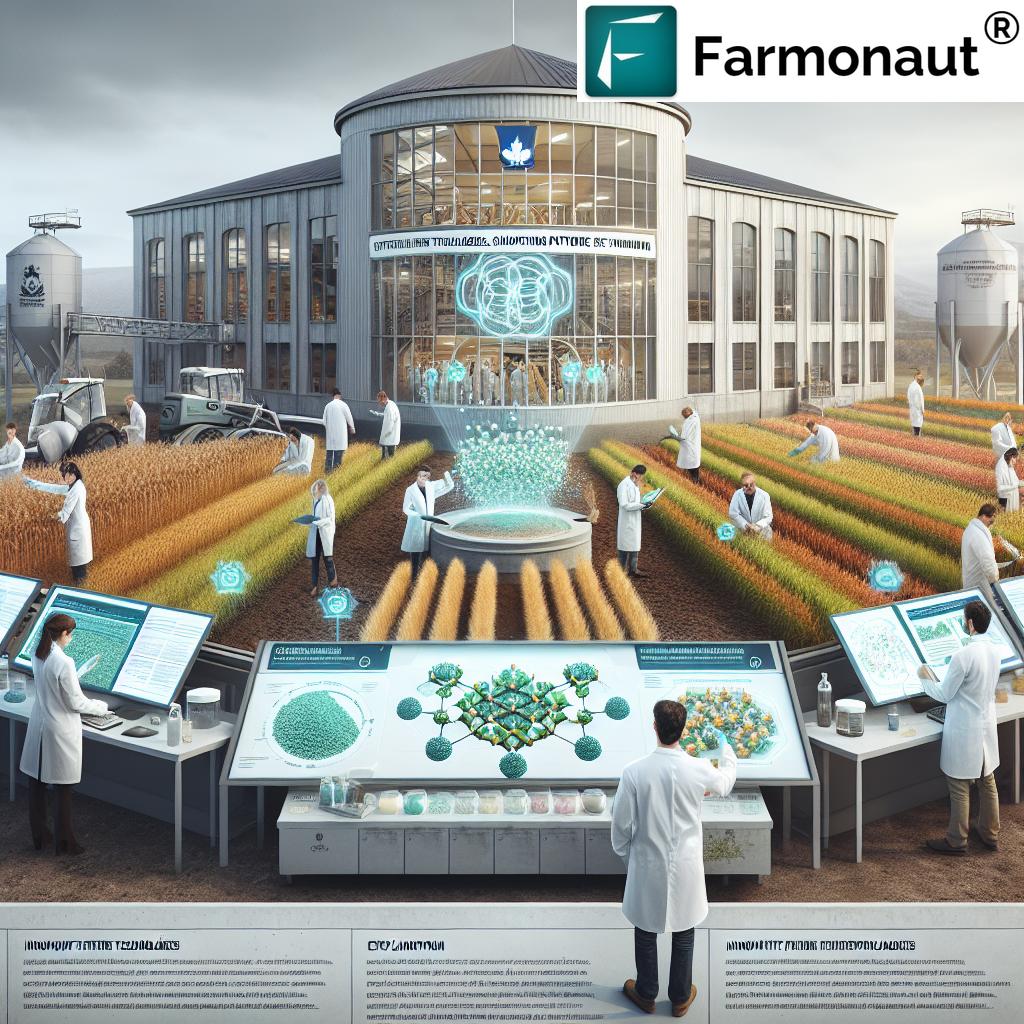
The Role of Technology in Advancing Sustainable Agriculture
As we witness the revolution brought about by certified organic wollastonite, it’s crucial to recognize the role of technology in advancing sustainable agriculture. Innovative platforms like Farmonaut are at the forefront of this technological revolution, offering cutting-edge solutions to enhance farming practices.
Farmonaut provides advanced, satellite-based farm management solutions that complement the use of sustainable farming supplements like wollastonite. Here’s how technology is further transforming agriculture:
- Precision Farming: Satellite imagery and AI-driven insights help farmers optimize the use of resources, including innovative fertilizers like wollastonite.
- Real-time Monitoring: Advanced technologies allow for continuous monitoring of crop health and soil conditions, enabling timely interventions.
- Data-Driven Decision Making: Farmers can make informed decisions about fertilizer application and other farming practices based on accurate, real-time data.
- Sustainable Resource Management: Technology aids in efficient water and nutrient management, aligning with the goals of eco-friendly soil amendments.
By integrating these technological advancements with innovations like certified organic wollastonite, we’re creating a powerful synergy that propels sustainable agriculture forward.
Explore Farmonaut’s innovative solutions:
The Future of Sustainable Farming with Certified Organic Wollastonite
As we look to the future, the integration of certified organic wollastonite in sustainable farming practices promises a new era of agricultural productivity and environmental stewardship. Here are some key areas where we expect to see significant developments:
- Research and Development: Ongoing studies will likely uncover even more benefits and applications of wollastonite in agriculture.
- Crop-Specific Formulations: We may see the development of specialized wollastonite-based products tailored to specific crops or soil types.
- Integration with Precision Agriculture: The use of wollastonite could be optimized through precision farming techniques, ensuring targeted and efficient application.
- Expansion to New Markets: As success stories emerge from Quebec, other regions may adopt similar practices, expanding the use of certified organic wollastonite globally.
- Policy Support: Governments may introduce incentives or policies to encourage the adoption of such sustainable farming practices.
The future of sustainable farming with certified organic wollastonite is bright, promising a more resilient, productive, and environmentally friendly agricultural sector.
Challenges and Considerations
While the potential of certified organic wollastonite in revolutionizing sustainable farming is immense, it’s important to acknowledge and address potential challenges:
- Education and Awareness: Farmers and agricultural professionals need to be educated about the benefits and proper use of wollastonite.
- Initial Costs: The upfront cost of implementing new farming practices and products can be a barrier for some farmers.
- Long-term Studies: More extensive, long-term studies may be needed to fully understand the impact of wollastonite on different ecosystems.
- Supply Chain Logistics: Ensuring a steady and efficient supply of wollastonite to farmers across different regions could present logistical challenges.
- Regulatory Compliance: As the use of wollastonite expands, ensuring continued compliance with evolving agricultural regulations will be crucial.
Addressing these challenges will be key to the widespread adoption and success of wollastonite in sustainable agriculture.
The Role of Farmonaut in Supporting Sustainable Agriculture
In the context of these agricultural innovations, Farmonaut plays a crucial role in supporting and enhancing sustainable farming practices. As a pioneering agricultural technology company, Farmonaut offers advanced, satellite-based farm management solutions that complement the use of innovative fertilizers like certified organic wollastonite.
Here’s how Farmonaut contributes to the advancement of sustainable agriculture:
- Precision Crop Monitoring: Farmonaut’s satellite-based crop health monitoring helps farmers optimize the use of resources, including innovative fertilizers like wollastonite.
- AI-Driven Insights: The Jeevn AI Advisory System provides personalized recommendations, which can include guidance on the optimal use of soil amendments like wollastonite.
- Resource Management: Farmonaut’s tools for efficient resource management align perfectly with the goals of sustainable farming and eco-friendly soil amendments.
- Data-Driven Decision Making: By providing real-time data and insights, Farmonaut empowers farmers to make informed decisions about fertilizer application and other farming practices.
For more information on how Farmonaut can support your sustainable farming efforts, explore their services:
API Integration: Farmonaut API
Developer Documentation: API Developer Docs
Conclusion: A New Era in Sustainable Agriculture
The certification of Quebec’s organic wollastonite marks a significant milestone in the journey towards more sustainable and efficient farming practices. This innovation, coupled with stringent Canadian agricultural regulations and the support of advanced technologies, is set to transform the agricultural landscape not just in Canada, but potentially worldwide.
As we move forward, the integration of certified organic wollastonite with cutting-edge agricultural technologies like those offered by Farmonaut presents an exciting opportunity to address global challenges in food security and environmental sustainability. The future of farming is here, and it’s greener, more efficient, and more innovative than ever before.
FAQ Section
Q1: What is wollastonite and how does it benefit agriculture?
A1: Wollastonite is a naturally occurring calcium silicate mineral. In agriculture, it helps stabilize soil pH, provides silicon and calcium to plants, improves soil structure, and enhances crop resistance to stressors.
Q2: How does certified organic wollastonite differ from traditional fertilizers?
A2: Certified organic wollastonite is a natural mineral that aligns with organic farming practices. Unlike many traditional fertilizers, it provides slow-release nutrients, improves soil structure, and is environmentally friendly.
Q3: What certifications has Quebec’s wollastonite received?
A3: Quebec’s wollastonite has received certification from the Canadian Food Inspection Agency (CFIA), as well as organic certifications from OMRI and Ecocert.
Q4: How does the use of wollastonite contribute to sustainable farming?
A4: Wollastonite contributes to sustainable farming by improving soil health, reducing the need for chemical inputs, enhancing water retention, and increasing crop resilience to environmental stresses.
Q5: Can wollastonite be used in all types of crops?
A5: While wollastonite has shown benefits in a wide range of crops, its effectiveness may vary. It’s best to consult with agricultural experts or conduct soil tests to determine its suitability for specific crops and soil types.





